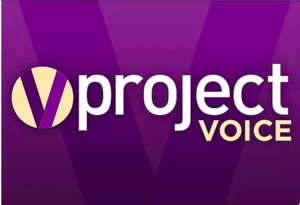The Project Voice event in Chattanooga, Tennessee was a sold out event bringing together key members of the voice community. Gathering knowledgeable people in a specific domain leads to interesting conversations and observations to be had when it comes to outlook on the voice space, or voice economy, going into 2020 and the years ahead. There are some clear challenges that the voice ecosystem will have to tackle in 2020. Taking a temperature check, it’s clear that operators in the space remain bullish, and we are at a time where the legacy players like Amazon, Google, and Samsung are clearly here to support and further the voice economy’s growth.

Two of the key challenges facing the Voice industry are discovery and monetization. The reason this keeps coming up is clear: these are both core factors that make it possible for developers and companies to create scalable businesses on these growing voice platforms. Adam Cheyer, Co-Founder of Siri and Viv Labs behind Bixby, added to the list during his keynote discussion. The list included issues like 3rd party experience fragmentation and poor personalization with the assistant platforms. If you look at the list of challenges, some may find it daunting and a reason to avoid the voice space all together. It is, however, I believe a sign of the tremendous opportunity that exists, and a big reason for this perceived opportunity are the legacy tech companies themselves.
Most of the voice platform companies, Amazon, Google and Samsung, are aware of the challenges at hand. In the past, companies like Amazon have made it very clear they are invested in growing the voice economy through actions such as launching the Alexa accelerator and creating an investment fund dedicated to Alexa and voice investments. While Google and Samsung also have similar programs, it is clear to anyone following the voice space that they were not as active or invested as Amazon is (and don’t get me started on Apple). However, Samsung has been on a tear over the last year or so through championing their developer community, and it appeared to be paying off at Project Voice. Independent developers and startups alike were optimistic about the future opportunities with the Bixby platform and working alongside Samsung. Google also made a splash at the show. Aside from sending everyone home with a Google Nest Hub, they were also willing to talk at the conference about the challenges mentioned above, and some of the ways they could help solve them. The main takeaway is that the legacy tech companies realize the main objective in 2020 is growing the overall voice economy and are willing to listen to the community’s perspective on how to fix the most important challenges.
The most important piece of the puzzle that leads me to be optimistic leaving Project Voice 2020 is the strong community that continues to grow in the voice space. Yes there are challenges to be solved, but this community sees them as an opportunity. The passion to grow this space has always been there with the overall community. However, when you throw in the passion this community has, along with powerful companies that are willing to support the industry’s efforts, it’s difficult not to bet on the future of the voice economy. We have a ways to go, but I have never been more excited to be along for the ride.
Cover Photo: Jason Rosewell